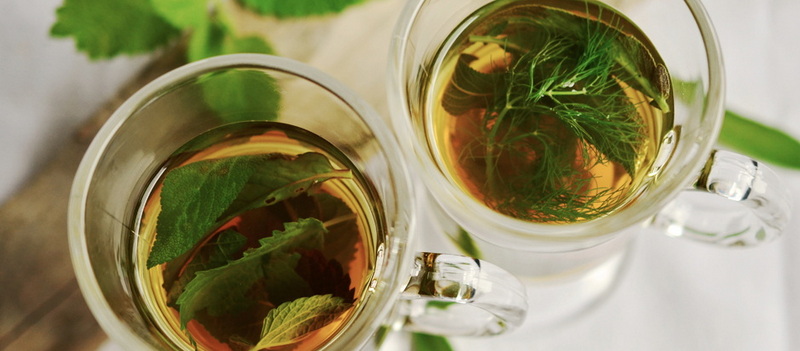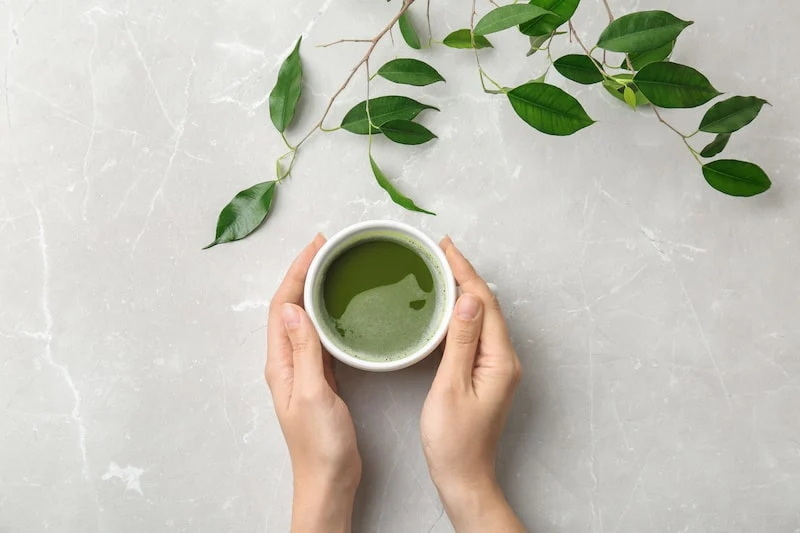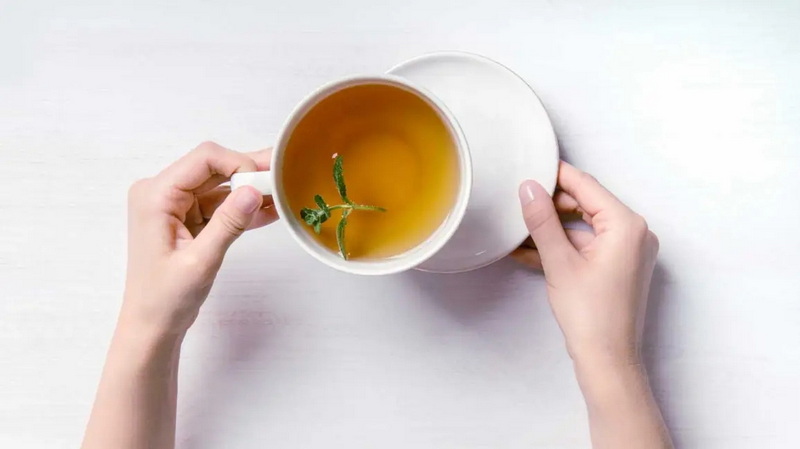Content Menu
● What is Green Tea Extract?
● Potential Benefits of Green Tea Extract
>> Antioxidant Properties
>> Liver Function Improvement
>> Other Health Benefits
● Potential Risks of Green Tea Extract on Liver Health
>> Liver Injury and Toxicity
>> Genetic Factors
>> Dosage and Concentration
>> Case Reports and Studies
● Factors Influencing Liver Health and Green Tea Extract
>> Individual Variability
>> Dosage and Duration
>> Formulation and Composition
>> Lifestyle Factors
● Recommendations and Precautions
● Conclusion
● FAQ: Frequently Asked Questions About Green Tea Extract and Liver Health
>> 1. Is green tea extract safe for everyone?
>> 2. How much green tea extract is too much?
>> 3. Can I drink green tea if I have liver problems?
>> 4. What are the signs of liver damage from green tea extract?
>> 5. Are there any benefits to taking green tea extract?
● Citations:
Green tea extract (GTE) has gained popularity as a dietary supplement due to its purported health benefits, including antioxidant, anti-inflammatory, and anti-cancer properties[2]. Derived from the Camellia sinensis plant, green tea is rich in polyphenols, particularly catechins, with epigallocatechin gallate (EGCG) being the most abundant and well-studied[2]. While green tea consumption is generally considered safe and beneficial, concerns have been raised regarding the potential adverse effects of concentrated green tea extracts on liver health[1][5]. This article aims to provide a comprehensive overview of the current evidence on the effects of green tea extract on the liver, including potential risks, benefits, and factors that may influence its safety.

What is Green Tea Extract?
Green tea extract is a concentrated form of green tea leaves, containing a high amount of active compounds like catechins, particularly EGCG[2]. These compounds are responsible for many of the health benefits associated with green tea, such as antioxidant and anti-inflammatory effects[2]. Green tea extract is available in various forms, including capsules, tablets, powders, and liquids[7]. The concentration of EGCG in these products can vary widely, ranging from 5 mg to 1000 mg per daily dose[7].
Potential Benefits of Green Tea Extract
Antioxidant Properties
Green tea is rich in flavonoids, which have antioxidant properties[2]. Catechins, the main flavonoids in green tea, have been found to decrease oxidative stress[2]. EGCG, the main catechin in green tea, is believed to reduce liver oxidation stress through its potent antioxidant activity[2].
Liver Function Improvement
Studies have shown that green tea with high-density catechins may improve liver function and reduce liver fat deposition in individuals with non-alcoholic fatty liver disease (NAFLD)[2]. Consuming green tea with high-density catechins for 12 weeks has been shown to improve liver function and reduce liver fat deposition in NAFLD patients[2].
Other Health Benefits
Long-term use of high-dose green tea extract may provide some protection against cancer, cardiovascular disease, obesity, and type 2 diabetes[1]. Catechins in green tea have demonstrated anti-tumor, anti-arteriosclerotic, anti-virus, anti-thrombotic, anti-allergenic, anti-hypertensive, and anti-hyperglycemic effects[2]. Animal experiments have indicated that catechins affect lipid metabolism by decreasing triglyceride and total cholesterol levels and enhancing energy utilization[2].
Potential Risks of Green Tea Extract on Liver Health
Liver Injury and Toxicity
High doses of green tea extract have been associated with liver injury, especially in obese individuals with oxidative stress[4]. Sporadic case reports have indicated liver injury effects from green tea-based products[4]. Health Canada issued an updated warning in late 2017 about potential liver toxicity from green tea extract, advising individuals, particularly those with liver disease, to watch for signs of liver damage[7]. Children are also urged to avoid using products containing green tea extract[7].
Genetic Factors
Genetic variations may play a role in determining who is at risk of liver damage from high-dose green tea extract[1]. Two genetic variants, one in the catechol-O-methyltransferase (COMT) genotype and another in the uridine 5'-diphospho-glucuronosyltransferase 1A4 (UGT1A4) genotype, have been identified as predictors of liver stress after ingesting high doses of green tea extract[1]. Individuals with the high-risk UGT1A4 genotype saw a significant increase in the enzyme that indicates liver stress after consuming the green tea supplement[1].
Dosage and Concentration
The amount of EGCG in a daily dose of green tea extract can vary significantly, and supplements providing more than 800 mg of EGCG per day have been linked with a greater risk of liver injury[7]. Green tea as a beverage is almost certainly safe for most people because it contains less EGCG than extracts[7]. Drinking green tea in normal amounts provides only 90 mg to 300 mg of EGCG per day[7]. Green tea is usually consumed along with food and throughout the day, which makes the amount of EGCG less concentrated compared to taking green tea extract all at once, sometimes on an empty stomach[7].
Case Reports and Studies
More than 200 cases of liver failure associated with green tea have been published in the last 30 years[9]. A study involving 1,075 women aimed to assess the effect of daily green tea extract consumption on biomarkers of breast cancer risk[4]. The analysis examined the effect of GTE consumption on liver injury in 1,021 participants with normal baseline levels of liver enzymes[4]. Among women in the GTE arm, alanine aminotransferase (ALT) increased[4].

Factors Influencing Liver Health and Green Tea Extract
Individual Variability
Individual responses to green tea extract can vary due to genetic factors, overall health, and liver function[1]. People with pre-existing liver conditions may be more susceptible to liver damage from green tea extract[7].
Dosage and Duration
The dosage and duration of green tea extract consumption play a significant role in its potential impact on liver health[7]. High doses and long-term use may increase the risk of liver injury[1].
Formulation and Composition
The formulation and composition of green tea extract products can vary, affecting the concentration of active compounds like EGCG[7]. Products with higher concentrations of EGCG may pose a greater risk to liver health[7].
Lifestyle Factors
Lifestyle factors such as diet, alcohol consumption, and other medications or supplements can interact with green tea extract and influence its effects on the liver[7].
Recommendations and Precautions
If you're considering using green tea extract, it's important to take certain precautions:
-Consult a Healthcare Professional: Discuss with your healthcare provider before starting green tea extract, especially if you have existing liver issues, take medications, or have other health conditions[7].
-Follow Dosage Guidelines: Adhere to recommended dosages to minimize potential risks.
-Monitor Liver Health: If you opt to use green tea extract, monitor for signs of liver issues like jaundice, dark urine, or abdominal discomfort[7].
-Choose Quality Products: Opt for reputable brands that provide clear information about the product's composition[7].
-Be Mindful of Interactions: Green tea extract may interact with certain medications or supplements, so it's crucial to be aware of potential interactions[7].
-Balanced Approach: Consider obtaining the benefits of green tea through traditional consumption rather than relying solely on extracts[7].
-Stay Informed: Keep abreast of the latest research and guidelines to make informed decisions about green tea extract consumption[1].
Conclusion
While green tea extract has potential health benefits, it is essential to be aware of the potential risks to liver health[1][5]. High doses of green tea extract may cause liver injury, especially in individuals with certain genetic variations or pre-existing liver conditions[1][7]. It is crucial to consult with a healthcare professional before taking green tea extract and to monitor for any signs of liver damage[7]. Drinking green tea in moderation is generally considered safe and may offer similar health benefits without the same risks as concentrated extracts[7].

FAQ: Frequently Asked Questions About Green Tea Extract and Liver Health
1. Is green tea extract safe for everyone?
Green tea extract is not safe for everyone. People with pre-existing liver conditions, those taking certain medications, and individuals with specific genetic variations may be at higher risk of liver damage from green tea extract[1][7]. Children are also advised to avoid products containing green tea extract[7].
2. How much green tea extract is too much?
The European Food Safety Authority has found that green tea supplements providing more than 800 mg of EGCG per day are linked with a greater risk of liver injury[7]. It is important to adhere to recommended dosages and not exceed this amount[7].
3. Can I drink green tea if I have liver problems?
Drinking green tea in moderation is generally considered safe for most people, including those with liver problems[7]. Green tea as a beverage contains less EGCG than extracts and is usually consumed with food, which reduces the concentration of EGCG[7]. However, it is best to consult with a healthcare professional before consuming green tea if you have liver problems[7].
4. What are the signs of liver damage from green tea extract?
Signs of liver damage from green tea extract may include jaundice (yellowing of the skin and eyes), dark urine, abdominal pain, nausea, vomiting, fatigue, and elevated liver enzymes[7]. If you experience any of these symptoms while taking green tea extract, discontinue use and seek medical attention immediately[7].
5. Are there any benefits to taking green tea extract?
Green tea extract has potential health benefits, including antioxidant, anti-inflammatory, and anti-cancer properties[2]. It may also improve liver function and reduce liver fat deposition in individuals with NAFLD[2]. However, these benefits must be weighed against the potential risks to liver health[1][5].
Citations:
[1] https://www.rutgers.edu/news/green-tea-extract-may-harm-liver-people-certain-genetic-variations
[2] https://www.spandidos-publications.com/10.3892/ijmm.2013.1503
[3] https://pmc.ncbi.nlm.nih.gov/articles/PMC4538013/
[4] https://aacrjournals.org/cancerpreventionresearch/article/10/10/571/112911/Effect-of-Green-Tea-Supplements-on-Liver-Enzyme
[5] https://www.ncbi.nlm.nih.gov/books/NBK547925/
[6] https://www.nature.com/articles/ejcn201678
[7] https://naturalmedicines.therapeuticresearch.com/news/news-items/2018/april/can-green-tea-extract-hurt-your-liver.aspx
[8] https://pmc.ncbi.nlm.nih.gov/articles/PMC3746392/
[9] https://pmc.ncbi.nlm.nih.gov/articles/PMC9745259/
[10] https://pubmed.ncbi.nlm.nih.gov/18482271/






























